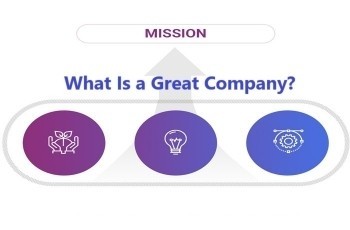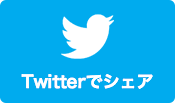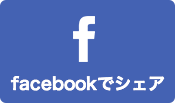シンクタンクからの眼 2021年5月12日
一流企業とは何か? What Is a Great Company?

一流企業とは何か? What Is a Great Company?
21世紀の企業経営において「一流企業(Great Company)」とは何だろうか。
単に市場シェアで他社を上回るだけではなく、顧客のために果たすべき役割を考え、時代をリードしながら新しい価値を創造する企業。それは、他者が真似できない独自の文化と精神が息づく企業だけが「一流(Great)」と呼ばれるにふさわしい存在である。
塩野七生は、その著書『ローマは一日にして成らず‐ローマ人の物語』でローマ帝国の成功の秘訣を分析し、「多様性」と「透明性」がその核心であると示唆している。
著者はこう問う。「知力ではギリシア人に劣り、体力ではケルト(ガリア)やゲルマンの人々に劣り、技術力ではエトルリア人に劣り、経済力ではカルタゴ人に劣るのが、自分たちローマ人である、と少なくない資料が示すように、ローマ人自らが認めていた。それなのに、なぜローマ人だけが、あれほどの大を成すことができたのか。一大文明圏を築きあげ、それを長期にわたって維持することができたのか?」
野七生が導き出した結論は明快だ。ローマは多様な人々を受け入れ、包容することで集団としての競争力を高め、それを基盤として強力な文明を築いた。「多様性」と「透明性」、この原則は、21世紀の企業にも依然として通用するものである。
多様性を尊重しない組織で、果たして優秀な人材を獲得できるだろうか。女性という理由で排除し、外国人という理由で差別し、年齢が高いという理由でチャンスを与えず、出身や学歴背景で人を評価していては、その企業に残る一流人材は極わずかになるだろう。個人が自力では変えることのできない要因で人を差別する集団では、真の競争力を期待することはできない。
個々の多様な文化が共存する企業は、創造性とイノベーションが促進される。これは特に変化に富む今の時代において、過去のパラダイムを超える重要な競争優位性として機能する。APPLEとSAMSUNG、SOUTHWEST航空はその例である。APPLEは多様な人材プールの力で倒産危機から革新的な製品「iMac」で復活し、その後もMacBook、iPod、iPhone、iPadの成功を通じて企業文化の重要性を世界に示した。SAMSUNGは30年前から多様な人材の採用に注力し、現在ではグローバルな企業として地位を確立している。SOUTHWEST航空は、経営方針の一つとして「社員第一」を掲げており、米国の航空会社で唯一、アメリカ同時多発テロ事件を受けた航空産業冷え込みにもレイオフを行っていない航空会社でもある。SOUTHWEST航空は、人材の多様性を通して楽しい職場という独自の経営哲学を通じて人材を引きつけ、従業員の忠誠心を高めた。賃金は航空業界平均を下回るにもかかわらず、高い採用競争率と低い離職率を誇り、スイスの航空輸送格付け機関から「世界で最も安全な航空会社」の10社のうちの1社に選定され、成功した企業文化の一例として注目されている。
一流の条件のもう一つの条件は「透明性」である。
透明性は持続可能な経営の必需条件でもある。企業が本質的な競争力を高めるために最も重要な美徳は透明性である。経営者が透明性と柔軟性のどちらを優先するかで悩むことはしばしばあると思うが、長期的に強い企業になるためには、必ず透明性を優先すべきである。それは単に「倫理的な企業」になるためではない。透明性こそが信頼に基づく企業の持続可能性を強化するソフトパワーだからである。
一流企業の条件として、「多様性」と「透明性」に基づく持続可能な競争力は欠かせないと確信している。多様性と透明性に基づく企業文化は、単なるスローガンではないからだ。それは競争力を高め、長期的な成果を保証する戦略的な選択である。ローマ帝国がそうであったように、21世紀の一流企業もまた、多様な人材と透明な経営哲学を通じて持続可能な成功を成し遂げるだろう。
(甲賀啓一、JGRA学会顧問、元野村証券GM)
What Is a Great Company?
In the 21st century, what defines a "Great Company" in business management?
It is not merely about surpassing competitors in market share but about considering the role a company should play for its customers, leading the times, and creating new value. A "Great Company" is one with a unique culture and spirit that cannot be imitated by others, truly deserving of the title "Great."
In her book "Rome Wasn't Built in a Day: The History of the Romans", Nanae Shiono analyzes the secrets of the Roman Empire's success, highlighting "diversity" and "transparency" as its core principles.
The author poses the following question: "Historical evidence indicates that the Romans themselves acknowledged being intellectually inferior to the Greeks, physically weaker than the Celts (Gauls) or Germans, less technically skilled than the Etruscans, and economically less powerful than the Carthaginians. So why was it only the Romans who achieved such remarkable greatness? Why were they able to establish a vast civilization and sustain it over the long term?"
Shiono's conclusion is clear. Rome enhanced its collective competitiveness by accepting and embracing diverse peoples, using this foundation to build a powerful civilization. "Diversity" and "transparency" remain relevant principles for 21st-century companies.
Can an organization that does not value diversity truly attract top talent? Excluding individuals because they are women, discriminating against foreigners, denying opportunities based on age, or evaluating people solely on their background or academic history would result in only a small number of exceptional talents staying with the company. A group that discriminates based on factors individuals cannot control cannot expect to achieve genuine competitiveness.
Companies that allow diverse cultures to coexist within their walls foster creativity and innovation. This is particularly critical in today's dynamic era, where surpassing old paradigms is essential for gaining a competitive edge. Examples include Apple, Samsung, and Southwest Airlines.
Apple leveraged its diverse talent pool to recover from near-bankruptcy with the innovative iMac, subsequently demonstrating the importance of corporate culture to the world through the success of products like the MacBook, iPod, iPhone, and iPad. Samsung has focused on recruiting diverse talent for over 30 years and is now firmly established as a global corporation. Southwest Airlines, which upholds "employees first" as a management philosophy, stands out as the only U.S. airline that did not resort to layoffs during the aviation industry's downturn following the 9/11 terrorist attacks. By embracing workplace diversity and fostering an enjoyable corporate culture, Southwest has attracted talent and boosted employee loyalty. Despite offering wages below the industry average, the company boasts high application rates and low turnover, and it has been named one of the "Top 10 Safest Airlines in the World" by a Swiss aviation rating agency, serving as a prime example of successful corporate culture.
Another essential condition for being Great is "transparency".
Transparency is a prerequisite for sustainable management. Among the virtues essential for enhancing a company's intrinsic competitiveness, transparency stands out as the most critical. While executives may sometimes struggle to prioritize between transparency and flexibility, a company seeking long-term strength must always choose transparency. This choice is not merely to become an "ethical company." Transparency enhances a company's sustainability through trust, acting as a form of soft power.
I am convinced that sustainable competitiveness based on "diversity" and "transparency" is indispensable for a Great Company. A corporate culture rooted in transparency and diversity is not just a slogan; it is a strategic choice that enhances competitiveness and guarantees long-term success. As was true of the Roman Empire, Great Companies in the 21st century will achieve lasting success through diverse talent and a transparent management philosophy.
(Keiichi Koka, Advisor to the JGRA Research Society, former GM of Nomura Securities)




